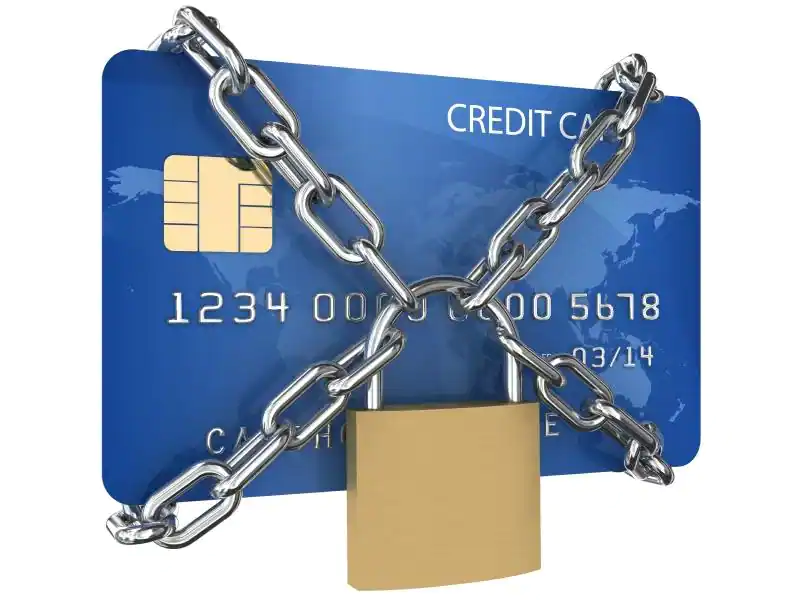
It used to be that when you got a credit card, you focused on the interest rate and, if you had a good credit score, you were probably keenly interested in the rewards program. Then, if you felt you had found a good credit card, and maybe one with a terrific introductory offer, maybe you started thinking about extras, like car rental insurance or no foreign transaction fees.
But now you’re probably also thinking about identity security and fraud protection.
After all, identity theft has run rampant in recent years. It’s almost hard to keep track of all the data breaches that have been in the news. There was that infamous data breach with Target in 2013. And who can forget the Equifax data breach of 2017? And, hitting even closer to credit card home, Capital One had a major hacking of over 100 million credit card applications just months ago.
Perhaps it’s no wonder that consumers are on edge and, distressingly, that identity thievery is on the rise. For instance, according to the Federal Trade Commission, in 2018, there was a significant jump in consumers who had credit card accounts opened in their name and without their permission. It was 24% increase. In fact, when identity theft occurred last year, credit card fraud was the favorite method of criminals, more than any other type of fraud. There were 157,688 cases of credit card fraud reported in 2018, compared to, for instance, 52,529 cases of bank fraud.
Charles B. “Charlie” Crawford, Jr., chairman and CEO of Hyperion Bank, which is headquartered in Philadelphia, says that he sees more cases of identity theft than he used to.
“The rate of fraud appears to be on the rise as the fraud alert system we use kicks in often to verify customer transactions,” says Crawford, who has spent 30 years working in banking. He says that at least once a week, they’ll learn that somebody tried to defraud a customer. That isn’t new, of course. Banks have always had to worry about customers being defrauded. It’s just that 30 years ago, Crawford says, identity theft was usually done by people forging somebody’s checks.
The good news, according to Crawford, is that consumers are generally well protected at all banks, whether they’re the big brands or one that is a regional presence. Still, Crawford naturally makes a plug for the more intimate-sized banks when it comes to learning your personal information has been compromised.
“I would suggest a consumer is better off at a smaller bank where they are known and can access someone who can resolve the issue,” Crawford says.
Overall, while major hacks unfortunately can and do sometimes occur, banks and credit cards have become very good at monitoring their consumers’ credit cards, debit cards and bank accounts and watching for criminals trying to do them harm. As you probably know, if you’ve ever had a bank or credit card contact you to ask about a suspicious purchase.
It also may make you feel better to know that if your credit card or debit card or bank account were hacked and raided, in the end, you likely won’t be on the hook for most of those purchases or maybe none of them at all.
The Fair Credit Billing Act, a federal law, outlines what consumers are responsible for should their cards be stolen and, it’s worth noting, that your protections are much stronger for credit cards than they are with debit cards. The law states that you won’t be liable for any credit card charges that aren’t yours that happen after you report the theft. If purchases are made before you report the card stolen, the most you’ll be responsible for is $50. Additionally, many credit cards won’t hold you liable for even that $50, though by law, they can.
If your debit card is stolen, as long as you report the card stolen within two days, the most you’ll be held liable for is, again, $50. After that, you might be liable for up to $500. And if you don’t report the debit card missing for two months, you might be liable for everything stolen, which gives you an excellent reason to check your bank balance daily (or at least every two days) or perhaps rely primarily on credit cards, which offer slightly better protections.
Meanwhile, credit card companies are watching your accounts, even if you aren’t. They know that they don’t look so hot if a hacker manages to make off with your data. The good news is that while the criminals may be getting more sophisticated with how they steal from consumers, the credit card companies are constantly developing new ways to protect their cardholders.
“The e-commerce fraud scene is an arms race, and thus, no one can rest of their laurels. Innovating and introducing new frictionless methods for consumers, will win the day,” says Ori Eisen, CEO and founder of Trusona, an identity theft protection company based out of Scottsdale, Arizona.
Eisen says that there are a lot of new technologies being hammered out that can make it easy for customers to make a purchase with their card “and yet hard for the crook to falsify.”
In fact, he says that passwords may be on their way out, being replaced with things like fingerprint and face scans.
“As passwords are static and easily phishable from unsuspecting consumers, it’s better to deploy newer technologies that are based on the ease of smartphone authentication,” Eisen says.
So if you’re looking for a credit card that will protect you, that will not just get you great reservations and cash back on groceries and gas, but will also figuratively body slam an identity thief into oblivion and keep your personal information personal, the good news is that all credit cards have systems in place to keep crooks at bay and federal law makes it worth their while to make sure fraud is discovered sooner rather than later.
But, sure, every credit card has its own approach to identity security and fraud prevention, and you may think one card sounds a little better in how they’re managing things than another. So if you’re interested in how credit cards are distinguishing themselves when it comes to protecting their cardholders, here’s a quick rundown of what some of the largest issuers are doing.
American Express
Fraud protection highlights you might like: Have you ever been annoyed because you’re trying to make a purchase with your American Express card, and you’re being asked to provide your billing zip code or a security code? Be thankful instead. You’re being asked because American Express is trying to make sure you’re the one using the card, instead of some hacker. American Express has numerous systems in place to monitor all purchases, and anything that looks suspicious, they’ll alert you, usually by phone but sometimes through email or text. You can also sign up for what they call “account alerts,” which will send you information about any of your payments, so you can make sure that any purchases being made on the card are being made by you.
Bank of America
Fraud protection highlights you might like: One of the things bank customers can do is to enroll in the bank’s program, “Verify Your Visa Card is With You.” You can sign in at the Bank of America mobile app, and once you do, when you make a purchase, Bank of America uses your phone’s location services technology to look and see where a purchase is made compared to where your phone is located. So if you live in Boise and clearly don’t appear to be on vacation, and a purchase is made halfway around the world, Bank of America can step in more quickly. If you are on vacation or a business trip, the feature works with both cellular and WiFi, so if you’re not using cell service while traveling, Verify Your Visa Card is With You will still work when you switch to WiFi. Bank of America’s mobile banking app also has fingerprint sign-on and retina and facial recognition available.
Capital One
Fraud protection highlights you might like: Capital One’s mobile app offers SureSwipe. If you want, you can replace your password with a custom pattern that you swipe with your finger. And then, as long as you always swipe the pattern the same way, you can get into the app and make purchases. You also might be interested in their CreditWise tool, which allows you to monitor your credit score and receive alerts when inquires are made to your credit. For instance, if an account is opened in your name or a change of address has been requested, and you didn’t do that, you know right away to alert Capital One.
Chase
Fraud protection highlights you might like: Like all of the cards mentioned, they have plenty of bells and whistles that will keep thieves from accessing your personal information – or at least alert the company if one does get his or her clammy hands on your card. But one bell or whistle that you might really like — you can sign up for Chase’s fraud protection text alerts. If any strange purchase occurs, like an identity thief does get your information, or your teenager borrows your card and signs up to buy a video game, you’ll know about it – immediately.
Citibank
Fraud protection highlights you might like: Aside from having the usual systems to monitor your credit cards and accounts, to make sure no suspicious activity is going on, if something does happen, Citibank’s free online and mobile fraud protection service will not just cover you for the full amount of the loss that the federal government demands that they cover, you’ll also be covered for any interest, overdraft charges or returned check fees that incur in the aftermath of your money being stolen. And if you are a victim of ID theft, Citibank has a team of specialists who will help you re-establish your credit and reclaim your identity.
Discover
Fraud protection highlights you might like: Discover won’t only monitor your credit card for suspicious activity. If your Social Security number is found on any Dark Web sites, they’ll let you know. The Dark Web is a part of the internet that’s only accessible with special software; criminals often hang out at these sites and stolen personal data often trades hands here.
Discover monitors Experian credit reports daily, and they’ll also alert you if they discover any new credit cards, mortgages or car loans on that credit report. And if you’re really worried about your account getting into the wrong hands – maybe you’ve lost your wallet and can’t find it – you can use their Freeze It service – and freeze your Discover account in seconds to prevent new purchases. And if you find your wallet a few minutes later? You can unfreeze the account within seconds as well.
Wells Fargo
Fraud protection highlights you might like: Control Tower is a pretty nifty program. It allows you to turn your Wells Fargo cards or digital card numbers on or off. So in theory, you could leave them off all the time, except when you go shopping (though if you have automatic withdrawal payments, that may hamper those). Still, the “control tower” lets you have quick control over all of your Wells Fargo accounts. You’ll also like that you can view recurring payments with payees (i.e., subscription stores), so if you end up changing your card number, you can easily track everyone down and update your new card information.
Again, all credit cards are looking out for identity thieves. At the bare minimum, you can expect your credit card to look for unusual activity and to alert you if the company suspects something weird has happened. But some credit cards do seem to have a little more flash than others. Still, as Eisen said, this is an “arms race.” If your credit card doesn’t have some new-age technology to protect you from identity theft, chances are, it will soon.
Because while credit cards used to be kind of like a friend who had friends in high places, where it would get you into fancy airport lounges or help you make reservations for a fancy restaurant, it’s another story now. Credit cards have to be more than our sidekick or pal – they’re also our bodyguards.


